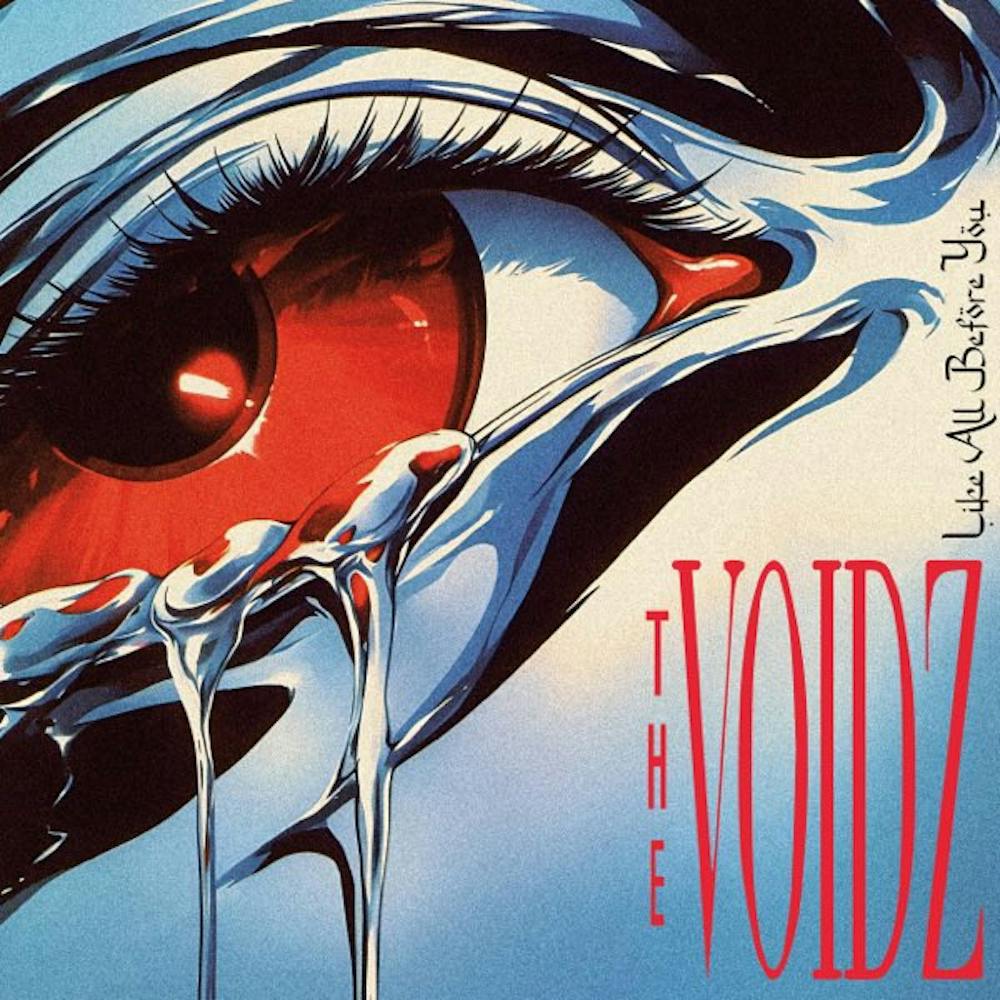By Andre Paras
Staff Writer
Six years out from their critically acclaimed album “Virtue,” The Voidz are back with 10 new tracks from their latest full-length LP, "Like All Before You.”
Formed over a decade ago, The Voidz consists of the group’s creator and lead vocalist, Julian Casablancas of The Strokes, percussionist Alex Carapetis, who was formerly a part of the rock band Wolfmother, and four other members.
With Casablancas and The Strokes pioneering a new sound in garage rock in the early-to-mid-2000s, the New York City origins clash nicely together with the sound of California at The Voidz’s recording studio in Venice, California, where this record was recorded.
Twenty years later, he continues to innovate through genre-mixing with this side project, from heavy metal and new wave to indie rock and classical, and more. In a tongue-in-cheek way, the band refers to their style as “prison jazz.”
With that being said, Casablancas has used The Voidz name to test all of his weird, creative ideas, continuing to push the boundaries of these genres in an eclectic mix, like throwing paint onto an empty canvas and seeing what sticks. For the better or worse, that goes to show on this record.
The album’s front half features a rocky start, with “Square Wave” and its lo-fi instrumental mix drowning out Casablancas’ distastefully auto-tuned singing at times with weird, whiny vocal inflections. It makes me wonder if this track’s mix could’ve used another look or if it was intentional, but its vocals feel unnaturally louder for certain parts of the song.
The track features the first of several Hindu references, with lyrics like, “...I wait around / To find what the Maharishi wants.” Maharishi was a guru who created Transcendental Meditation, and is famous in the music realm for his work with The Beatles.
Casablancas’ words become more incoherent as he gets more vulnerable, ending the second chorus, singing, “Holding back the tears, leave it for tomorrow,” but it's taken me multiple listens and a lyric reading to recognize that.
Lead single “Prophecy of the Dragon” picks up a bit in tempo, with a dissonant combination of electronic drums and a hard-rock guitar riff reminiscent of Van Halen and Metallica entering and leaving the song for chunks of time. It gets lost toward the end and could be improved by a simple edit chopping off some of the runtime.
The album’s fourth track, recent single “7 Horses,” begins to pick things up a bit. The song’s attention-grabbing moments include its lulling, layered chorus and breakdown led by its guitar riff, along with a skillfully intricate solo to end the song. This not only flexes lead guitarist Jeramy “Beardo” Gritter’s skills, but also he and the producers using a distinct electronic-heavy tone for the guitar to go along with it.
The classical influence comes in on "Spectral Analysis” through its beautiful repeating piano melody. It's Casablancas at his most fragile, smack dab in the middle of the record, with themes of isolation and abandonment rumored to be about his recent divorce. He’s cryptic about a “suicide pact,” and repeats the chorus singing gently: “Abandoned your family / Waiting on the balcony / Looking for you.”
The whole track feels so cinematic, like it could be placed at a movie’s emotional climax in a slow-motion world-altering moment. It ends with Casablancas telling whoever the track is directed to that he’ll be in contact Sunday, though remaining distant — implying that whoever he’s speaking to, he’s still only just on speaking terms with.
“Flexorcist” is a big tonal shift with a bright happy intro of 80s-inspired keys and palm-muted guitars, sounding like a revamped Pet Shop Boys instrumental with a hint of Daft Punk and The Strokes. It's a big turning point for the record, with this song clocking in at nearly 7 minutes. It's very clearly this record’s opus to me and a fun sonic adventure to return to.
If you want a guitar shred-fest, “Perseverance-1V2S” is the one for you. Lead guitarist “Beardo” grants your wish with a long solo over an eerie soundscape, alongside the urgent delivery by Casablancas. “All the Same” is a deceptively upbeat track musically, as Casablancas discusses his everyday monotony.
The bookends of this album were unfortunately pretty forgettable.
All in all, it’s still great for what it is. While “Like All Before You” may never hold a candle to the group’s previous record (or a Strokes record), it’s redundant to compare, especially the latter. Early on, I had gripes with its mixing and some instrumental elements that stuck out like a sore thumb.
Some of its tracks could use an edit, but the record won me over with its experimentation and vulnerability. The album’s tracklist might not flow into each other the best, but I’ll take this fun mess with great highs over a more safe record. Many bands aspire to have work as great as Julian Casablancas’ unfiltered side passion project.







